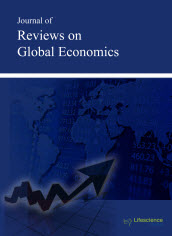Philippine Household Income Mobility Measurement and its Decomposition using a Pseudo-Longitudinal Panel Data
Keywords:
Economic status, income distribution, income inequality, income mobility, welfare.Abstract
When economic growth does not translate into poverty reduction and it remains a challenge, it is crucial to examine income mobility since income is a measure of individual economic status or poverty status. To understand the role of economic growth on welfare when there is income mobility, this study measured the Philippine households’ income mobility utilizing pseudo-longitudinal panel data from the Family Income and Expenditures Survey (FIES) of 2003 to 2012. Using various income mobility indices such as chi-square, average jump index and Shorrocks mobility index, the results revealed that the households’ income movement was more mobile than expected. This means that the households’ income status improved through time, low-income rank moved to higher-income rank in a given income distribution. In addition, short-run income inequality was reduced by 87.30 percent (87.30%) when there was income mobility. The presence of income mobility in the country was mainly due to the transfer effect which indicates that households did not take the economic opportunities of economic growth to increase their economic status.
Downloads
Published
How to Cite
Issue
Section
License
Policy for Journals/Articles with Open Access
Authors who publish with this journal agree to the following terms:
- Authors retain copyright and grant the journal right of first publication with the work simultaneously licensed under a Creative Commons Attribution License that allows others to share the work with an acknowledgement of the work's authorship and initial publication in this journal.
- Authors are permitted and encouraged to post links to their work online (e.g., in institutional repositories or on their website) prior to and during the submission process, as it can lead to productive exchanges, as well as earlier and greater citation of published work
Policy for Journals / Manuscript with Paid Access
Authors who publish with this journal agree to the following terms:
- Publisher retain copyright .
- Authors are permitted and encouraged to post links to their work online (e.g., in institutional repositories or on their website) prior to and during the submission process, as it can lead to productive exchanges, as well as earlier and greater citation of published work .


